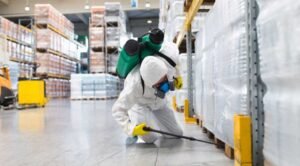For commercial property owners, maintaining the integrity of the building’s roof is an essential part of preserving the overall value and safety of the property. One of the most effective ways to ensure the longevity and performance of a roof is through regular inspections. We will explore the many advantages of scheduling consistent commercial roof inspection with a professional commercial roofing company, including cost savings, prevention of major damage, and improved safety for the property and its occupants. Understanding these benefits can help property owners decide about roof maintenance strategies.
Contents
Early Detection of Issues
One of the primary benefits of regular roof inspections is the early identification of potential issues. Roofs, especially in commercial buildings, are subjected to various environmental stresses, including harsh weather conditions, temperature fluctuations, and wear and tear caused by daily operations. Property owners can catch small problems by scheduling routine inspections before they escalate into costly and extensive repairs. These issues are often more manageable when discovered early, whether it’s a minor leak, missing shingles, or debris buildup. A professional roofing technician can inspect the roof thoroughly, identifying weak spots and areas of concern that might not be obvious to the untrained eye. Proactive detection allows for timely repairs, preventing larger problems that could lead to significant structural damage or water intrusion.
Cost Savings Over Time
Another significant advantage of regular roof inspections is the potential for long-term cost savings. Roof repairs and replacements can be expensive, particularly for large commercial buildings. However, routine inspections help mitigate these costs by identifying issues before they become major expenses. Small, manageable repairs typically cost less than large-scale replacements, and catching them early can significantly extend the roof’s lifespan. Additionally, regular maintenance can help optimize the performance of roofing materials, ensuring that they continue to protect the building effectively. By addressing minor issues before they escalate, property owners avoid the need for costly emergency repairs or premature roof replacements, ultimately saving money in the long run.
Increased Roof Lifespan
The lifespan of a commercial roof can vary depending on several factors, such as the type of roofing materials used, the building’s location, and the quality of installation. Regardless of these variables, regular inspections contribute significantly to the roof’s longevity. During inspections, roofing professionals can identify areas of deterioration, such as cracked membranes, rusted flashing, or worn-out seams. Timely repairs and maintenance can address these issues before they cause more severe damage, allowing the roof to reach its full potential lifespan. Additionally, regular care can prevent the accumulation of debris and prevent issues like algae or moss growth, which can weaken roofing materials. With consistent maintenance, commercial property owners can extend the life of their roofs, deferring the need for a costly replacement.
Improved Energy Efficiency
Regular roof inspections are not only essential for maintaining a roof’s structural integrity but can also enhance a building’s energy efficiency. Over time, factors such as damaged insulation, leaks, or gaps in the roofing material can allow heat to escape or cold air to infiltrate the building, leading to increased heating and cooling costs. A thorough roof inspection can help identify building thermal efficiency issues. By repairing these issues, a roofing company can improve the roof’s ability to maintain a consistent indoor temperature, reducing energy consumption. This translates to lower utility bills and a smaller environmental footprint, benefiting the business’s bottom line and sustainability efforts.
Protection Against Weather Damage
Commercial roofs are often exposed to extreme weather conditions such as heavy rain, snow, hail, or intense heat. These environmental elements can damage the roof, from leaks and water damage to roof membrane degradation. A commercial roofing company can identify vulnerabilities in the roof’s structure through regular inspections and recommend necessary repairs or upgrades. For example, an inspection might reveal areas of the roof that are particularly susceptible to wind damage or sections prone to pooling water after heavy rains. By addressing these issues proactively, property owners can avoid the significant costs and potential operational disruptions resulting from weather-related roof damage.
Compliance with Insurance and Warranty Requirements
Many commercial property insurance policies and roofing warranties require regular roof inspections to remain valid. Insurance companies may stipulate that property owners must maintain their roofs in good condition to avoid paying for repairs or replacements in the event of damage. Similarly, many roofing manufacturers require routine inspections to ensure that the terms of a warranty are met. Scheduling regular inspections ensures that property owners stay compliant with these policies and warranties, safeguarding their investment. If an issue arises, having a documented history of inspections can help expedite the claims process and provide the necessary evidence to support any insurance claims or warranty requests.
Regular roof inspections from a commercial roofing company offer a wide range of benefits that go beyond simple maintenance. Regular inspections ensure that the roof remains in optimal condition for years, from early detection of issues to cost savings and enhanced safety. Property owners who prioritize these inspections can extend the lifespan of their roof, improve energy efficiency, and even increase the value of their property. Ultimately, the investment in routine roof inspections pays off by preventing costly repairs and ensuring the safety and longevity of the building. Regular roof care is essential to maintaining a commercial property, providing peace of mind, and protecting the investment in the long term.








